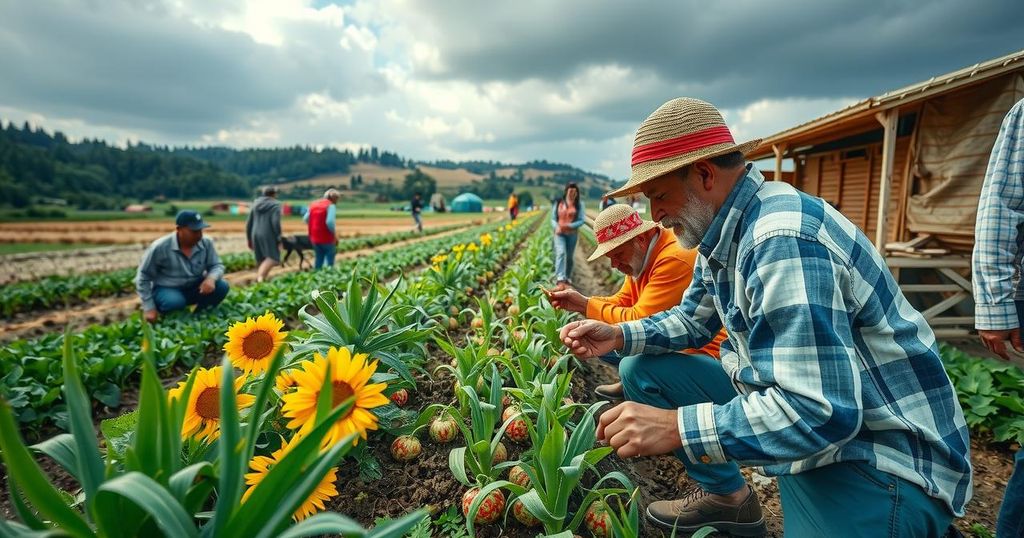Fairtrade Farmers’ Proactive Steps Toward Climate Change Resilience

Fairtrade producer organisations are actively developing climate change adaptation plans to enhance agricultural resilience against climate impacts. As of December 2022, 502 organisations have implemented these plans, particularly among coffee producers. The study underscores the effectiveness of various adaptation measures but highlights the need for enhanced data collection and collective approaches to future climate challenges. Continuous training and financial support are essential for successful long-term adaptations.
Fairtrade producer organisations are increasingly developing climate change adaptation plans (CCAPs) to safeguard their agricultural practices against the impacts of climate change. According to a study by Fairtrade International, 502 organisations have implemented these plans, particularly in the coffee sector, with adaptations also in cocoa, tea, banana, and sugar production. The majority of these plans, though primarily targeting moderate climate effects, have been instrumental in enhancing farmers’ knowledge and practices related to climate resilience. The study highlights how dynamic adaptation measures—like planting disease-resistant crop varieties, improving soil health, and better water management—have been effectively employed to bolster production. Notably, there is a significant link between training farmers and their understanding of climate challenges, which further equips them to engage with these adaptation strategies. Overall, these actions have led to measurable improvements in soil quality, reduced fertilizer reliance, and greater crop yields. Nevertheless, the research underscores the necessity for stronger data collection and monitoring frameworks. To accurately assess the efficacy of CCAPs and their long-term impacts, producer organisations must standardize data collection processes. Moreover, future adaptations must consider not only present but also forecasted climate scenarios. As climate extremes become more pronounced, a shift towards collective action among producer organisations is warranted to facilitate radical adjustments in production systems and responses. Ultimately, successful long-term adaptation will hinge upon continuous training, expert guidance, and enhanced financial support, enabling farmers to undertake more substantial transformational changes in their agricultural practices.
The topic of climate change adaptation among Fairtrade farmers addresses the urgent need for sustainable agricultural practices in the face of evolving environmental challenges. With an increasing frequency of extreme weather events and changing climate patterns, producers within the Fairtrade system are at risk of losing productivity and viability. Therefore, the development and implementation of climate change adaptation plans (CCAPs) present a strategic approach to mitigate these risks and enhance the resilience of agricultural communities. The study cited reveals widespread engagement in adaptation initiatives and highlights the importance of continuous education and infrastructure investment to address future climate scenarios effectively.
In conclusion, Fairtrade producer organisations are making significant strides in developing and implementing climate change adaptation plans to improve agricultural resilience. The current adaptation measures have shown promise in enhancing production through improved agricultural practices, soil health, and crop yields. However, to navigate the increasing challenges posed by climate change, these organisations must adopt comprehensive data collection methods and establish collective actions for more profound adaptation strategies. The commitment to ongoing training and financial support remains vital for fostering long-term transformational change among farmers.
Original Source: www.fruitnet.com






